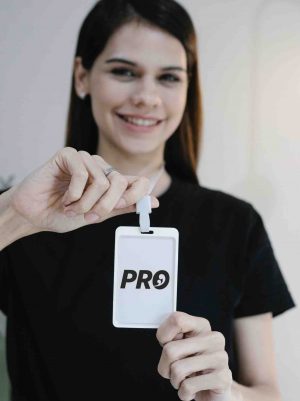Using Scoop for work

USING SCOOP FOR WORK
Using Scoop in a professional context requires a Scoop Pro license under our Ethical Paywall model. This keeps Scoop open for the public, and Scoop Pro users enjoy additional benefits.
WHAT IS AN ETHICAL PAYWALL?
The traditional business models for news organisations have been in crisis for some time. To address this, Scoop developed the Ethical Paywall model administered through Scoop Pro.
An Ethical Paywall is a system in which organisations pay a fair fee to enable their team’s access to Scoop for work purposes, this ensures that Scoop remains free for personal use by the public.
This model ensures that important news and information remain accessible to the general public for personal use, free of charge. By paying a fair fee for the professional use of Scoop, organisations help to keep it accessible for everyone, including those who may not have the financial resources to access quality news content otherwise.
Free access to news is important for:
- Democracy and Civic Engagement: Free news access fosters an informed public where stay people can stay informed about important issues, current events, and the governments actions. This helps enable participation, informed decision-making, and government accountability which is vital for a functioning democracy.
- Social Equality: Free news narrows the knowledge gap, ensuring equal access to information regardless of socio-economic status, promoting social equality.
- Accountability and Transparency: Free news plays a crucial role in uncovering corruption, exposes wrongdoing, and holds institutions and individuals accountable, ensuring transparency in public affairs and preventing abuse of power.
- Education and Knowledge: Free news provides educational insights into various topics, issues, and perspectives from around the world, while helping to expand knowledge, understanding of cultures, and empowering informed decisions in peoples lives.
While some news organisations are implementing hard paywalls and subscription models to sustain their operations, through the Ethical Paywall, Scoop is striking a balance between free access and sustainable funding – Scoop believes this model is essential to ensure that independent news organisations can be self-sustaining to be able fulfil the fundamental roles of news in society.
DOES MY ORGANISATION NEED A LICENCE?
Organisations whose staff use Scoop for work require an Ethical Paywall licence administered through Scoop Pro.
Scoop’s terms of use state that unlicensed commercial use of Scoop Content in any professional capacity is expressly prohibited. Commercial users include companies, organisations, institutions, partnerships, government departments, associations and societies, trusts and other entities, whether registered or unregistered, private or public, and whether for profit or not for profit.
Professional use of Scoop includes:
- Reading the Scoop.co.nz website for business purposes at work,
- Making copies of Scoop content or sending links to clients and colleagues,
- Printing news items out or sharing news items internally,
- Monitoring Scoop using third party media monitoring tools.
Based on these use cases if you or your organisation needs to have an Ethical Paywall licence to access Scoop, but have questions or need more time to evaluate Scoop please fill out our Licensing Contact form below to assist us to follow up with you.
HOW DID THE ETHICAL PAYWALL START?
Scoop’s Ethical Paywall was initiated in 2012 with new website terms and conditions that clearly stated that commercial use of Scoop content requires the purchase of a Scoop Organisation Licence. This method was in response to the UK Court of Appeal decision in the NLA vs Meltwater case. The court ruling confirmed that online content is copyright protected, and businesses using media monitoring services that include content from online newspapers require a license. Scoop applied the principles from the case, asserting our right to set terms of use and receive payment from organisations that use Scoop while honouring those conditions.
WHAT ARE THE PRACTICAL AND LEGAL IMPLICATIONS?
The practical implications of the Ethical Paywall can perhaps most easily understood if one considers the counter-factual. If our paywall blocked access to content – like a common subscription based paywall – it might be possible for someone to get around it and into our website and read the content. If they were to do so then they would be breaching the terms and conditions of use. In Scoop’s case, because we want to maintain free public access we are operating on an honesty box principle for professional usage i.e if upon honest reflection you or your organisation is using Scoop in a professional capacity then you need to purchase a license.
The issue of the NLA vs Meltwater case was explained in our 2012 editorial: NLA vs Meltwater: Protecting Online Content Without Paywalls. In summary, Meltwater is a global technology based media monitoring company which originated out of Scandinavia. They scrape the world wide web – find news that is of interest to their clients and send them reports. The Court of Appeal of England and Wales issued a judgment in the case NLA v Meltwater, which established a precedent allowing online content owners to regulate the usage of their content through terms and conditions. The ruling confirmed that online content is copyright protected and that businesses subscribing to media monitoring services require a license. While the ruling is not directly binding in New Zealand, it is likely that New Zealand courts would adopt a similar stance due to similarities in copyright legislation.
WE’RE OPEN FOR QUESTIONS
Please send your details through the form below if you have any questions or email us at pro@scoop.co.nz
Can’t see a form? Try this link





